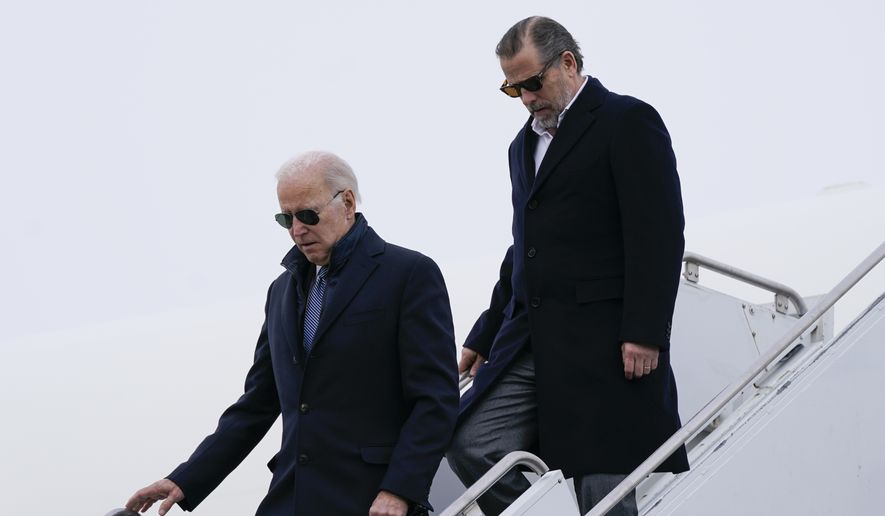Biden administration officials kept quiet for nearly a week after the suspected Chinese spy balloon first entered U.S. airspace, fearing the matter would derail Secretary of State Antony Blinken’s planned trip to Beijing, according to a new report.
U.S. officials first became aware of the balloon on Jan. 28 when it was spotted over Alaska before entering Canadian airspace and returning over U.S. skies over northern Idaho on Tuesday, Bloomberg reported, citing several officials familiar with the matter.
By the time the balloon was spotted over Montana, which is home to one of America’s three nuclear missile fields at Malmstrom Air Force Base, president Biden had already been briefed on the balloon and was deciding on whether to shoot it down.
According to Bloomberg, administration officials kept the discussions low-key, fearing the international incident would scuttle Mr. Blinken’s long-planned trip to China and out of concern for political blowback from Republicans ahead of the 2024 presidential election.
The administration was forced to go public on Thursday, however, after the Billings Gazette published a photo of the balloon.
The Pentagon revealed on Thursday evening that it was tracking the Chinese balloon in U.S. airspace.
The Pentagon also said it had considered deploying F-22s to shoot down the balloon but decided against it, citing the safety of people on the ground.
The public acknowledgment sparked a firestorm of concern on Capitol Hill and ultimately led Mr. Blinken to postpone his planned trip to meet with Chinese President Xi Jinping.
China‘s Foreign Ministry, in a relatively conciliatory message on Friday, confirmed the craft was from China but said the balloon was not engaged in espionage and was collecting meteorological data and had been blown off course by “westerly winds.”
That explanation, however, fell flat in Washington.
The White House on Friday said the incident is a “clear violation” of U.S. sovereignty and international law, despite Beijing’s claims that the craft was not engaged in espionage.
White House press secretary Karine Jean-Pierre told reporters on Friday that President Biden was first briefed on the balloon on Tuesday and has continued to receive “regular briefings and updates” from his national security team as the balloon remains in flight.
“We are tracking it closely and keeping all options on the table,” she said. “It does not present a military or physical threat to people on the ground.”
But the administration’s decision not to shoot the balloon down has been the subject of intense criticism by some who say not doing so was a display of weakness by the administration.
Lawmakers from both sides of the aisle have also pressed the administration to brief Congress on its handling of the incident.
Rep. Mike Gallagher, Wisconsin Republican and Chairman of the House China competition commission, said the balloon should have been shot down before it entered U.S. airspace.
“Now that it’s over the US we need to take it down safely to prevent further collection near some of our most sensitive military installations,” he said.
Sen. Thom Tillis, North Carolina Republican, raised concerns about the balloon’s potential flyover of sensitive military installations in his state, including Fort Bragg and Camp Lejeune.
“President Biden’s decision not to destroy it even as it passed through sparsely populated areas is puzzling, and we deserve answers,” Mr. Tillis said on Twitter.
Sen. Jon Tester, Montana Democrat and chairman of the Senate Defense Appropriations Subcommittee, said on Friday that he was “still waiting for real answers on how this happened and what steps the Administration took to protect our country.”
“Montanans value their freedom and privacy and I’ll always fight to defend both,” Mr. Tester said. “China’s actions are a clear threat to those values and to America’s national security, and I’m demanding answers from the Biden Administration.”
The Biden administration is expected to hold a briefing for the “Gang of Eight” on Capitol Hill, which includes the chairs and ranking members of the House and Senate intelligence committees, next week.
• Joseph Clark can be reached at jclark@washingtontimes.com.




Please read our comment policy before commenting.